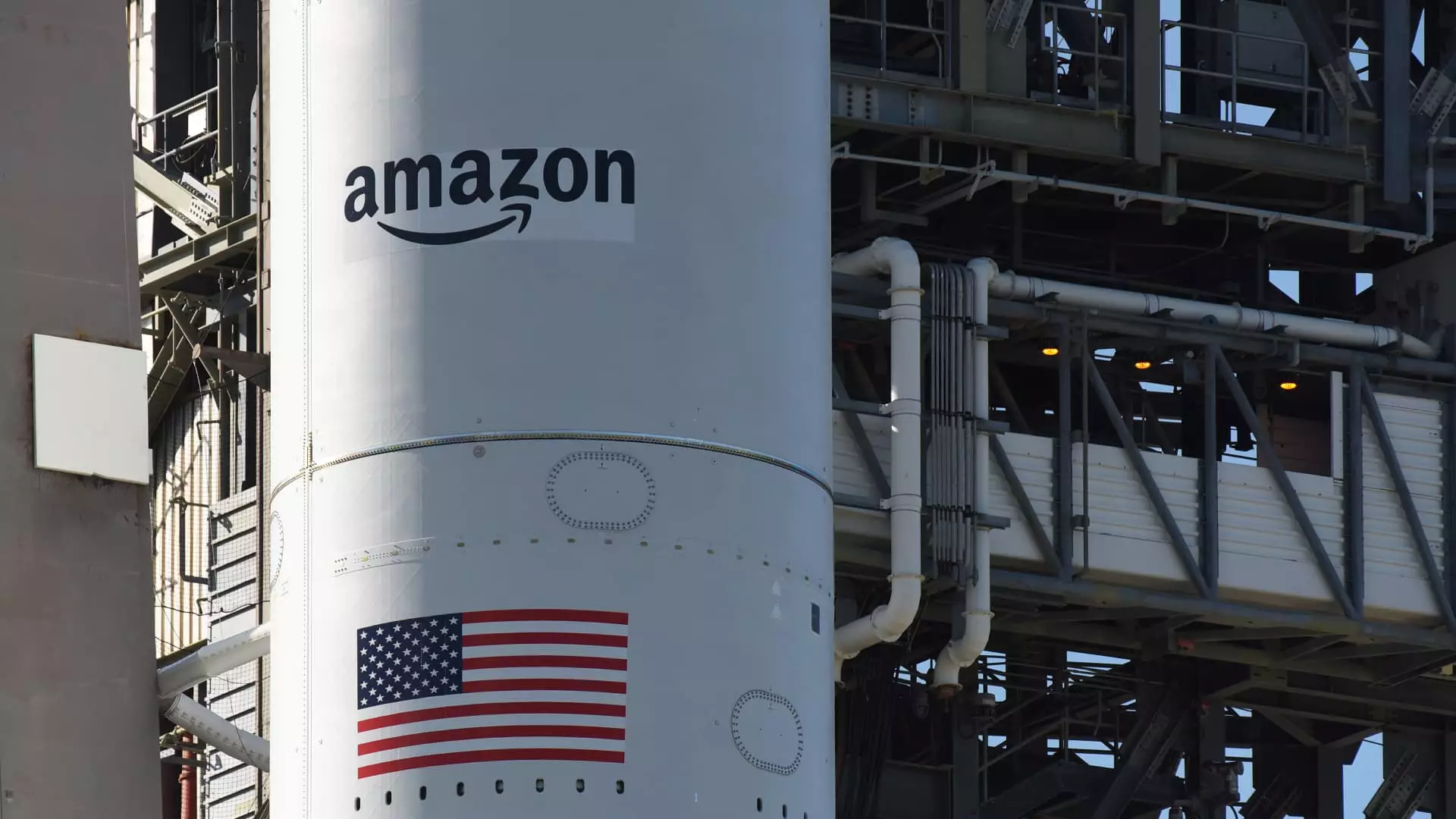The recent delay of Amazon’s Kuiper satellite launch paints a vivid picture of the ruthless nature of space endeavors. A United Launch Alliance (ULA) rocket intended to carry 27 of Amazon’s satellites was grounded not by technological failure, but by the weighty presence of “stubborn cumulus clouds” and fierce winds. This incident exposes a recurrent theme within the aerospace sector: regardless of technological prowess and financial backing, external forces can thwart even the most meticulously planned initiatives. In a sector where timing is crucial, it’s emphatically clear that Mother Nature doesn’t abide by corporate schedules.
The Weight of Competition
Amazon’s reactions to the setbacks are indeed fascinating. The company’s Kuiper project is not just a venture into internet provision; it’s a bold statement against established behemoths like SpaceX and its cornerstone project, Starlink. With over 8,000 satellites already orbiting the Earth, SpaceX has gained significant ground in establishing internet connectivity across the globe. Amazon, with its ambitious timeline and looming FCC deadlines, is undeniably under pressure. What does it imply that, even in their best-laid plans, unpredictable weather can jeopardize their race against time?
Tensions in an Expanding Nexus
The stakes are alarmingly high. The Federal Communications Commission’s deadline is not merely a bureaucratic hurdle; it is a life-or-death signal for Amazon’s aspirations in the satellite internet market. The countdown to have at least 1,618 of Kuiper’s satellites launched by July 2026 translates to a fierce chase against an ever-tightening clock. As we consider the implications of such a staggering mandate, we shouldn’t overlook the inherent danger posed by having a single corporate giant rushing to occupy the digital stage.
A New Era of Influence
Moreover, the intertwining of technology and political power in this rapidly evolving landscape cannot go unmentioned. Enter Elon Musk – a titan who has not only revolutionized space travel but also holds a peculiar influence within the government. Serving as an advisor to President Donald Trump, Musk’s role extends beyond mere commercial enterprise; he is now a key player in determining the tenor of U.S. space policy. This captures the dissonance of capitalism and governance, wherein corporate interests are enmeshed with national priorities. Amazon’s race against SpaceX is no longer just a competition of innovation; it is a contest for the soul of how space governance may unfold in the years ahead.
The Fragility of Progress
As we observe these events unfold, we must acknowledge the fragility of progress in such an unforgiving environment. Each delay serves as a stark reminder that constructing a virtual frontier is not devoid of peril; it is laden with risks that challenge the very fabric of technological advancement. For Amazon, overcoming the turbulence of initial setbacks could mean not only adapting to the whims of space weather but also navigating the intricate web of competition, regulation, and influence that characterizes the modern aerospace landscape. This underscores an urgent need for resilience and innovation, a poignant reminder that the race for connectivity is as much about strategic foresight as it is about the flight of rockets into the cosmos.

Leave a Reply